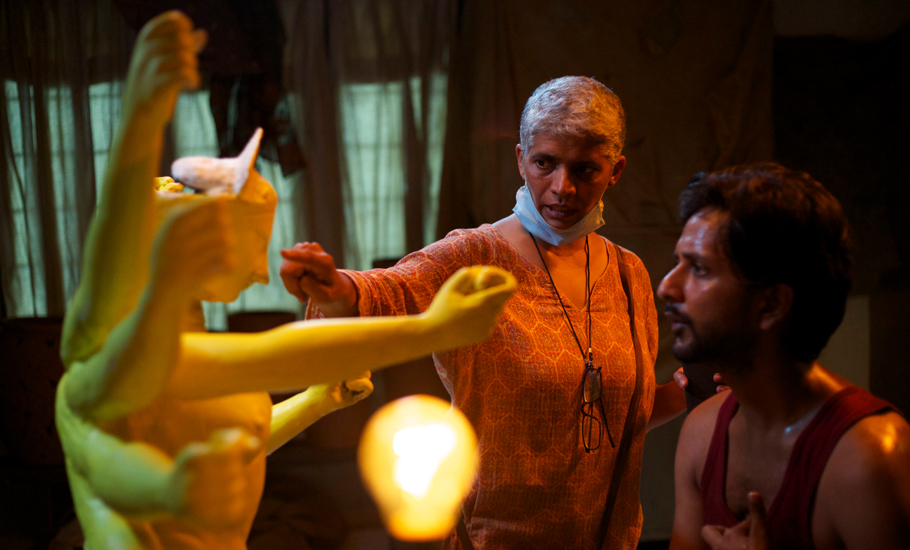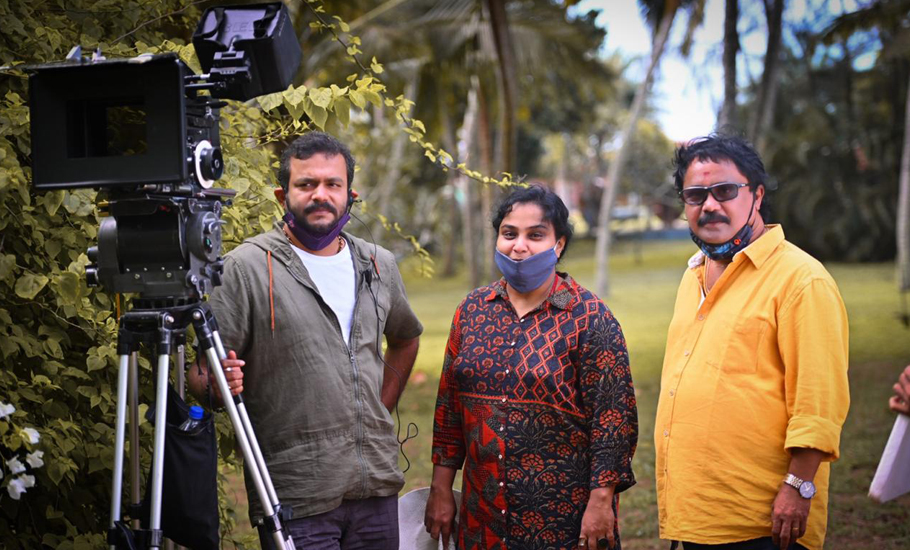
- Home
- India
- World
- Premium
- THE FEDERAL SPECIAL
- Analysis
- States
- Perspective
- Videos
- Sports
- Education
- Entertainment
- Elections
- Features
- Health
- Business
- Series
- In memoriam: Sheikh Mujibur Rahman
- Bishnoi's Men
- NEET TANGLE
- Economy Series
- Earth Day
- Kashmir’s Frozen Turbulence
- India@75
- The legend of Ramjanmabhoomi
- Liberalisation@30
- How to tame a dragon
- Celebrating biodiversity
- Farm Matters
- 50 days of solitude
- Bringing Migrants Home
- Budget 2020
- Jharkhand Votes
- The Federal Investigates
- The Federal Impact
- Vanishing Sand
- Gandhi @ 150
- Andhra Today
- Field report
- Operation Gulmarg
- Pandemic @1 Mn in India
- The Federal Year-End
- The Zero Year
- Science
- Brand studio
- Newsletter
- Elections 2024
- Events
- Home
- IndiaIndia
- World
- Analysis
- StatesStates
- PerspectivePerspective
- VideosVideos
- Sports
- Education
- Entertainment
- ElectionsElections
- Features
- Health
- BusinessBusiness
- Premium
- Loading...
Premium - Events

Nishiddho lays the red carpet for Kerala’s women directors

The Indian film industry has produced many women directors, but it is still considered a field dominated by men. Their talent notwithstanding, women face a lot of struggles in the industry to find a footing. To support aspiring women directors, the Kerala State Film Development Corporation (KSFDC) launched a project called Films by Women Directors in 2019. The initiative has borne fruit...
The Indian film industry has produced many women directors, but it is still considered a field dominated by men. Their talent notwithstanding, women face a lot of struggles in the industry to find a footing.
To support aspiring women directors, the Kerala State Film Development Corporation (KSFDC) launched a project called Films by Women Directors in 2019. The initiative has borne fruit as Nishiddho (Forbidden), the first film under the project produced by KSFDC and directed by Tara Ramanujan, won the Best Film at Ottawa Indian Film Festival, the Second Best Film at this year’s Kerala State Film Awards and at the International Film Festival of Kerala (IFFK).
The 124-minute-long film showcases a relationship that blooms between a Bengali man and a Tamil woman amidst the chaotic city life in Kerala’s Kochi. Kani Kusruti plays Chaavi and Tanmay Dhanania plays Rudra, an idol-maker from Kolkata now working as a construction worker. Nishiddho was also featured in prominent film festivals in and outside the country. The venture is the first complete work of the Films by Women Directors project, which seeks to support women directors as part of Kerala government’s women empowerment initiative.
In a freewheeling chat, Tara spoke about how empowerment initiatives like this help women filmmakers. “Gender does not decide talent. Vision and imagination do. But then, mere talent is not enough. You need opportunity and support, and of course, viewership. If you make a film, people are going to judge the film and you as a director, based on its content and their response to it, be it arthouse or commercial. KSFDC’s inclusion initiative to support minority communities is significant. Projects like Films by Women Directors will give diverse voices a chance to be heard, leading to a better balanced narrative,” said Tara, a debut director.

Even though we have great women directors – Aparna Sen, Mira Nair, Sai Paranjpye, Geetu Mohandas and Anjali Menon – the number is far less than ideal. “There is no dearth of talent, but the number is nearly not enough. I read somewhere that the ratio is like ‘25 male directors to one woman director’. It’s a matter of opportunity and effort, even luck. Projects like this make things accessible for minorities. It is a stepping stool to reach something that’s hard to get otherwise,” said told The Federal.
She added that though she appreciated the opportunity given to her to make the film, she would prefer if the audience would view the film without prejudgement. It’s always interesting to show and see things from a different point of view. “Try not to see the director; see, hear, and if possible, feel the story. I want to be invisible as the storyteller. Hopefully, sooner than later, there will be enough women making films that there won’t be a need for a ‘woman director’ label, but until then projects like these are necessary to start making a level-playing field,” she added.
Tara finished the screenplay in 2018 and wanted to make it into a movie. She even tried with a small team of friends, but it was too big a challenge. Fortunately for her, around this time KSFDC announced their project calling for women directors. She sent in the script and it was selected from among 60 other screenplays. “It was challenging, as a person and as a director because this was the first time that I stepped into the shoes of a director. Getting all the departments together and understanding them was a bit difficult for me in the initial stage of our shooting. But thankfully, I had a wonderful crew and cast, and we worked as a team,” said Tara, who used mostly amateur artists in the movie.
“Barring Kani Kusruti and Tanmay Dhanania, most of the others were amateur artists. It was challenging, but everyone did a great job and we could finish the shooting in a month as planned,” she said.
It wasn’t a smooth sailing completely though. The pandemic made the job difficult. Tara wanted to shoot long queues of migrant workers at railway stations of Kerala, particularly in Aluva, a hub of migrant workers. “The railway stations were empty due to the pandemic. We had to bring people to create queues and crowds. That was hard, financially as well as practically,” said Tara. “Mask was another issue. Everyone wore masks. We couldn’t ask them to take it off because of the health hazard,” she added. The movie was shot in Kochi, Kolkata and Madurai. Even though the shooting was done when the pandemic-imposed restrictions were in force, Tara said, “fortunately no one in the crew got infected during the shoot”.
Nishiddho sees the story of regular people from a different angle. “I have taken elements from Kumartuli, a traditional potters’ colony in Kolkata, where the idols of Durga are made for the annual Durga Puja festival. Years ago, when I first visited Kumartuli, I was a bit thrown when I saw idols, finished and unfinished ones, stacked by the roadside, and after Puja, and the immersion in Ganga, by the riverside, as a heap of waste. That was the start of Nishiddho.”
In Kumartuli, Tara met China Pal, the first woman idol-maker in the male-dominated field. “She told me she was called ‘Chai-Na’ (not wanted) because she was a female child. She was the third or fourth girl child and her mother didn’t want her, hence the name.
Nishiddho deals with migrant life in the city, and other social issues like infanticide and marginalisation. The film raises questions about the choices that we make and their consequences,” she said. Chaavi, the main character in the movie, is not a single woman, according to Tara. “Chaavi has all the women I see around me who survive, live their lives and fight their battles with a quiet dignity.” The film also earned Tara the FFSI KR Mohanan Award for the Best Debut Director from India at the International Competition Section of the 26th International Film Festival of Kerala 2022 (IFFK).

Tara said she wanted to show the real life of people as it is. Chaavi’s and Rudra’s life is in the city, with all its stark reality; around the streets and canals of Kochi with its garbage and dark and pungent waters. “They don’t dream of exotic places, for them a ride in the metro is an escape from their reality. In the movie, I have left many questions unanswered. The audience can draw their own conclusions. My characters are very real. Chaavi and Rudra are not heroes, solving theirs and others’ problems. Like you and me, they try to solve issues in their lives, at times unsuccessfully,” Tara told The Federal.
“Awards are nice, it makes one feel that the film and the people got recognised for their efforts. Being new at direction, I was happy enough knowing that I could finish the project successfully, within the budget and timeframe. Now KSFDC is conducting workshops for women directors after the screenplays are shortlisted. It’s great that you get mentored by professionals in the field.” Tara said even though funding is available for filmmakers in many states, she has not heard about a project like ‘Films By Women Directors’ in other states. “It would help filmmakers of all kinds if other states also had minority inclusion initiatives like this one,” she added.
